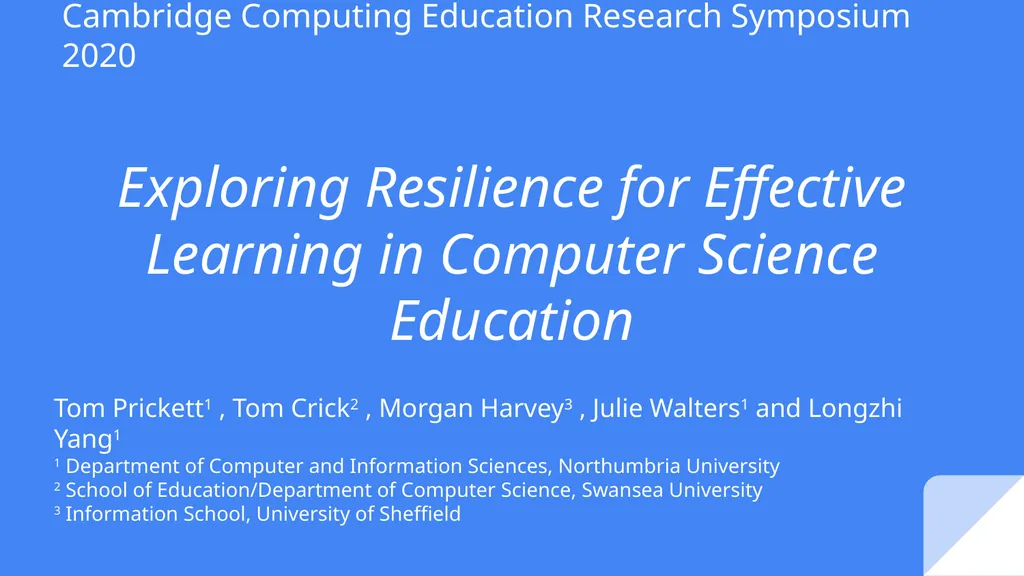
Author : tawny-fly | Published Date : 2025-05-16
Description: Cambridge Computing Education Research Symposium 2020 Exploring Resilience for Effective Learning in Computer Science Education Tom Prickett1 , Tom Crick2 , Morgan Harvey3 , Julie Walters1 and Longzhi Yang1 1 Department of Computer andDownload Presentation The PPT/PDF document "" is the property of its rightful owner. Permission is granted to download and print the materials on this website for personal, non-commercial use only, and to display it on your personal computer provided you do not modify the materials and that you retain all copyright notices contained in the materials. By downloading content from our website, you accept the terms of this agreement.
Here is the link to download the presentation.
"Cambridge Computing Education Research Symposium"The content belongs to its owner. You may download and print it for personal use, without modification, and keep all copyright notices. By downloading, you agree to these terms.













